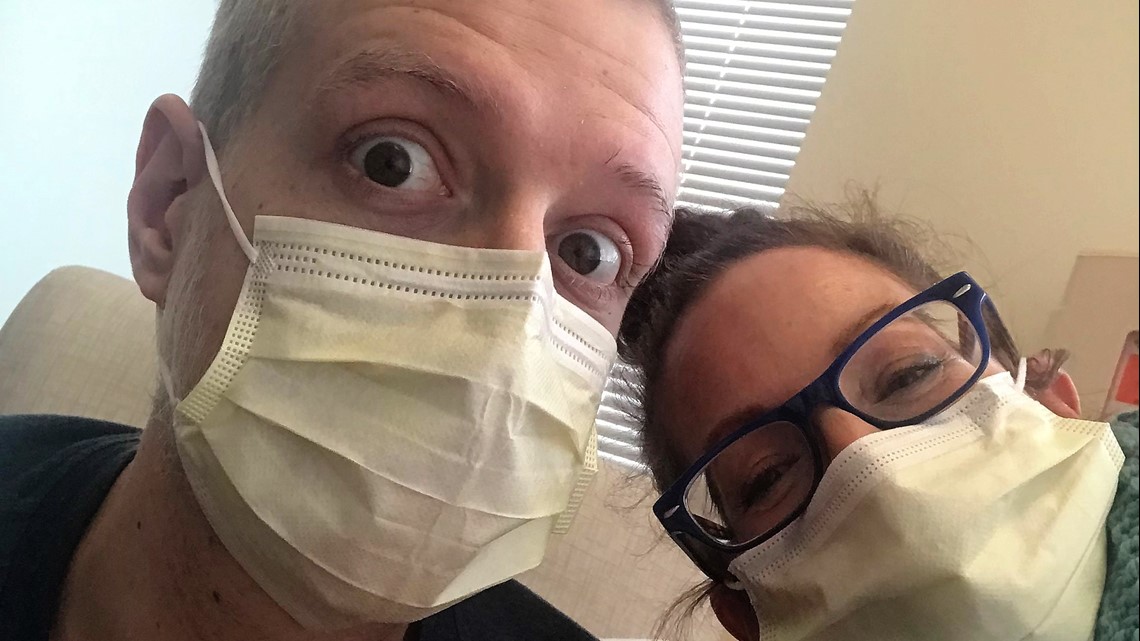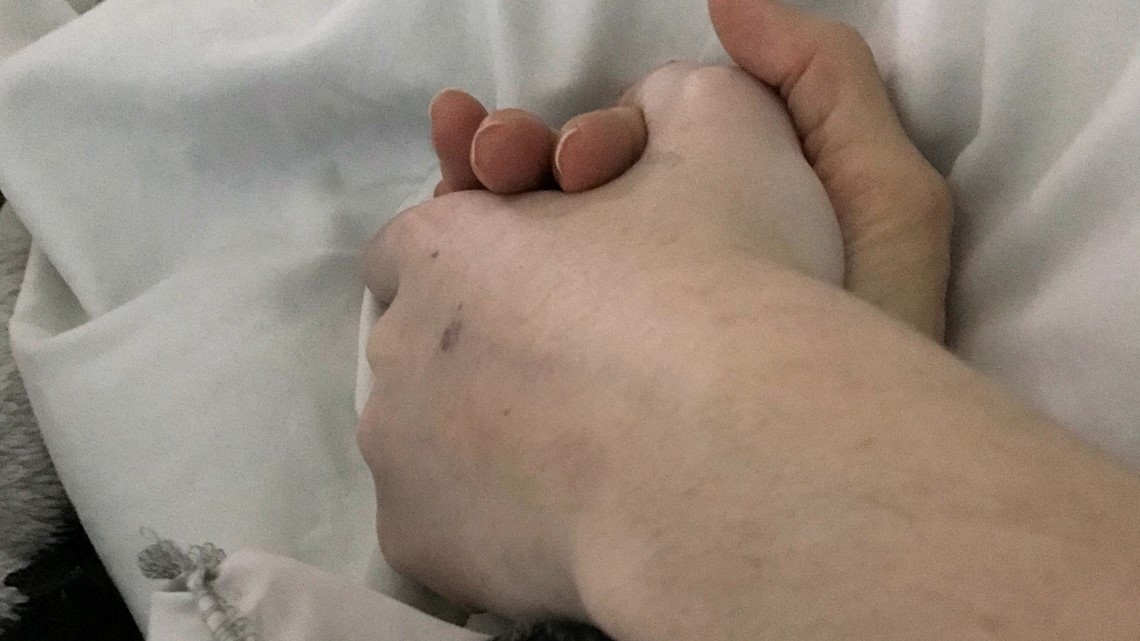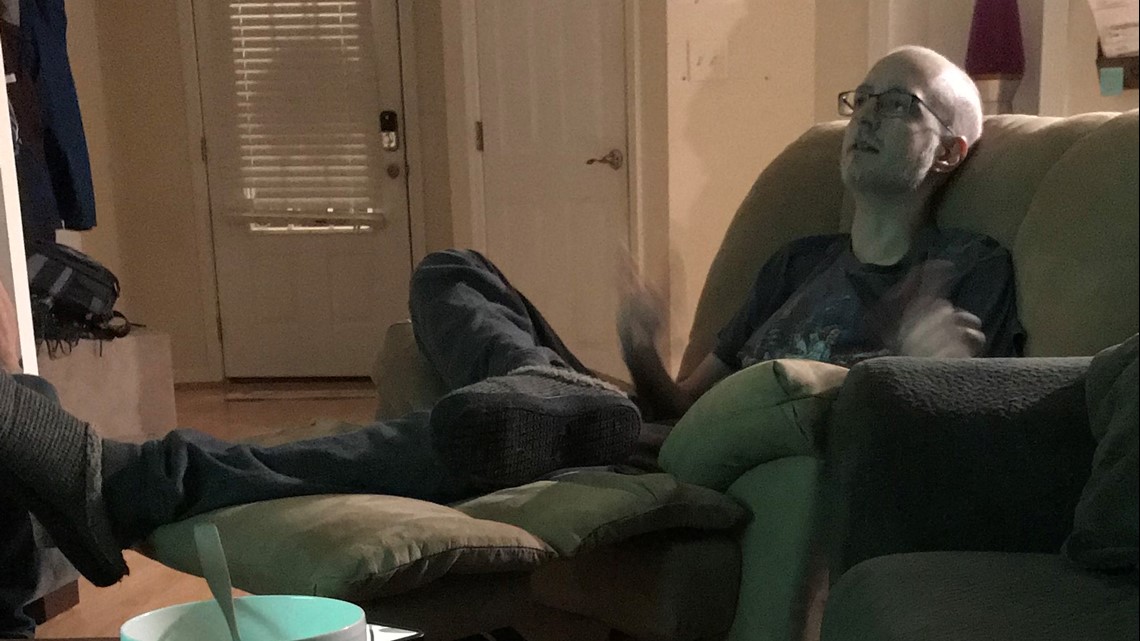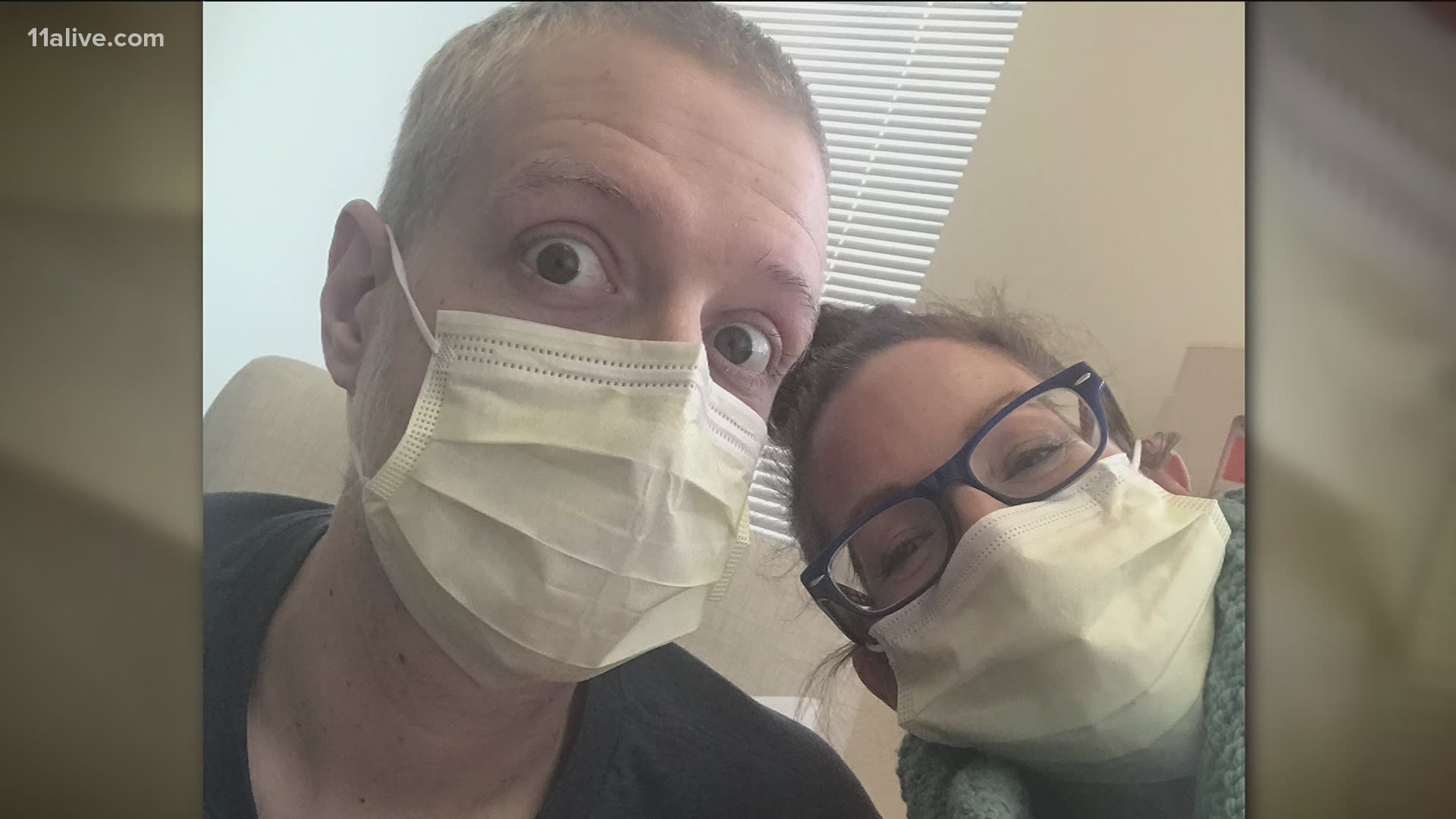ATLANTA — A mother says she’s frustrated that she can’t properly advocate for her son, who's had brain surgery and several forms of cancer, due to COVID-19 pandemic restrictions.
As the virus continues to be a nationwide pandemic, medical facilities have come to have some of the strictest rules for entry.
Now, Terie Hansen is challenging a top university hospital, Emory, to make what she feels are common-sense decisions when it comes to visitation for terminally ill patients.
Hansen said she's doing her best to advocate for her 29-year-old son James.
“It’s heartbreaking,” she said. “And I don’t know if it would be less heartbreaking if I were there.”
She said her son has been in and out of the hospital for the last three years fighting cancer, tumors, and a host of other health issues. But, right now, she's concerned about not being able to see him due to COVID-19 restrictions.
“I just get the hard stop every time I talk to someone,” Hansen said.
She said she understands why the restrictions are in place.
“I don't want to get sick and I certainly don’t want my son to get sick because, at this point, if he did he probably wouldn’t make it," she said.


But she said that, because of her son's condition, his cognitive skills are not what they used to be.
“You’ll say something to him and a little bit later he’s asking you that again, or you’re asking him questions and he’s giving you answers but not the right answers,” she described.
Hansen said that, because her son is well-spoken and the staffing changes throughout the day, they may not notice this. But she does because she lives with him at times.
“That will impact the care that they give him,” she said. “If they’re asking him questions and he’s telling them the wrong answers, he doesn’t realize he’s doing it.”
She worries about his ability to advocate for his own care and share information with his family.
“I want to be there when they’re giving him information or when they’re asking him for information,” she added.


Hansen said she has healthcare power of attorney and an advanced care directive for her son. But still, she hasn't been able to visit him in person or directly talk to his doctors.
“I’m just trying to protect my son for the time we have left with him,” she said.
It's important to note that Emory is not the only medical facility with restrictions in place. Emory Healthcare released a statement on Friday reading:
On Wednesday, Oct. 21, Emory Healthcare transitioned from visitor exceptions to Care Partners for certain groups of hospitalized patients. We have revised our visitation policy and guidelines to include, under certain circumstances, the presence and participation of a family member or a loved one who will be designated as a Care Partner to assist in caring for these hospitalized patients.
The no visitor policy remains in effect for the emergency department, surgical and procedural outpatient services, and for outpatient clinic visits, with few exceptions granted.
A Care Partner, designated by the patient, will be allowed for inpatients who meet the Care Partner criteria, and will be identified at the discretion of the direct care team. The criteria for Care Partners are adjusted based on the incidence of COVID-19 in the community and the extent to which that incidence is changing. While we understand how difficult it is for families, we are limiting entry into our hospitals to approved Care Partners only for the safety of our patients and care teams. Care Partners will undergo the same screening requirements as our care teams. Care Partners will serve as a primary point of contact for the patient’s family and friends, maintain a close communication with the care team, assist in discharge education, and provide a human connection for companionship and emotional support.
Care Partners are not allowed for hospitalized patients who are COVID–19 positive or for inpatients with COVID–19 symptoms who are awaiting a test result.



